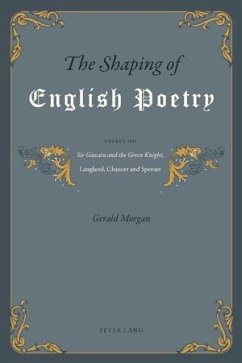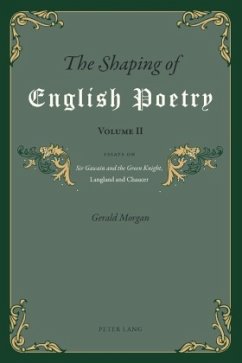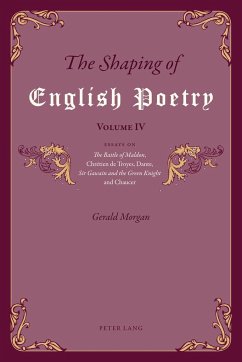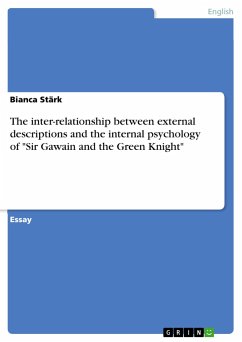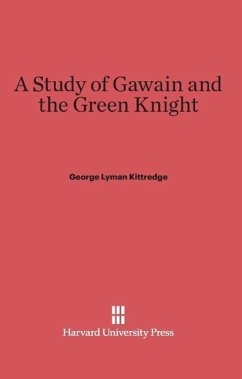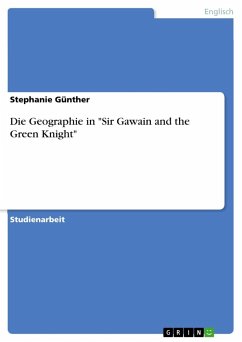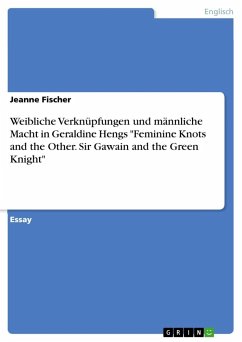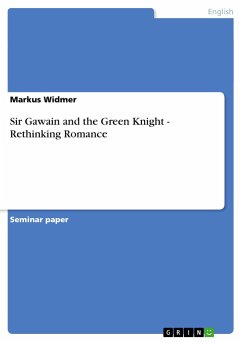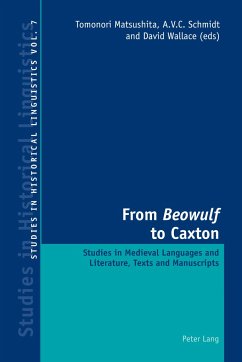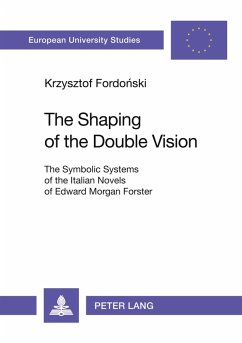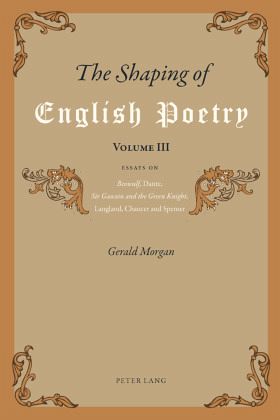
The Shaping of English Poetry- Volume III
Essays on 'Beowulf', Dante, 'Sir Gawain and the Green Knight', Langland, Chaucer and Spenser
Versandkostenfrei!
Versandfertig in 6-10 Tagen
73,25 €
inkl. MwSt.

PAYBACK Punkte
0 °P sammeln!
This third volume of essays under the title The Shaping of English Poetry includes, as in the previous volumes, essays on Sir Gawain and the Green Knight, Langland, Chaucer and Spenser; it also includes essays on Beowulf and Dante. It was never the author's intention to exclude Old English poetry from the historical continuum of English poetry, and practical rather than ideological considerations explain the absence of Beowulf from the two previous volumes. The language of Beowulf is in all essentials the language of Sir Gawain and the Green Knight and Piers Plowman, in one and the same native...
This third volume of essays under the title The Shaping of English Poetry includes, as in the previous volumes, essays on Sir Gawain and the Green Knight, Langland, Chaucer and Spenser; it also includes essays on Beowulf and Dante. It was never the author's intention to exclude Old English poetry from the historical continuum of English poetry, and practical rather than ideological considerations explain the absence of Beowulf from the two previous volumes. The language of Beowulf is in all essentials the language of Sir Gawain and the Green Knight and Piers Plowman, in one and the same native alliterative tradition, and also the language of Chaucer, in the European tradition inherited from the great French and Italian poets. The transition from Beowulf to Dante may seem abrupt, but the poetry of Chaucer, whose assimilation of Italian influences is both formidable and remarkable, requires us to make it. Indeed, the exploration in this volume of Dante's exposition of love in the Purgatorio takes us to the heart of the poetry that we associate with the period of Chaucer's greatness in the 1380s and 1390s. Here we see not an anachronistic system of courtly love, imposed on medieval poems by modern critics, but distinctions of natural, sensitive and rational love that make sense (among other things) of the ending of Troilus and Criseyde as the poem's logical and persuasive conclusion.



